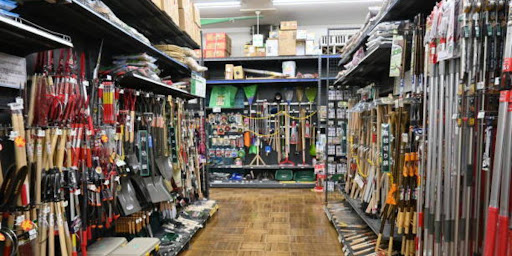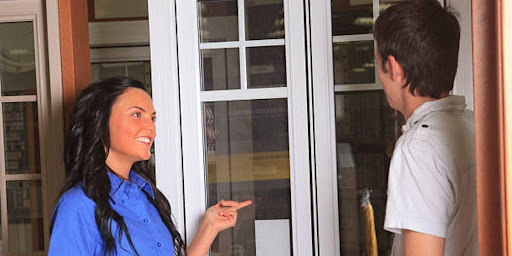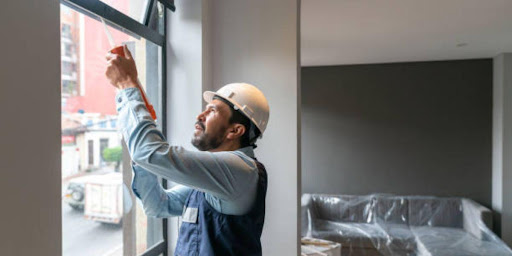Power Articles
Industry Elevating Content
Maximizing Efficiency - A Guide to Choosing the Right Window Hardware for Commercial Installations

PowerArticles
Sept. 18th, 2023
In commercial window installations, optimizing efficiency is not merely a goal; it’s a necessity. Selecting the right window hardware plays a pivotal role in ensuring seamless functionality, energy efficiency, and long-term durability for commercial structures. This guide is tailored to empower companies specializing in window and door installations with the knowledge and insights necessary to make informed choices when it comes to selecting the most suitable hardware, ultimately enhancing the performance and longevity of their installations while minimizing maintenance costs. Whether it’s hinges, locks, handles, or other crucial components, this comprehensive resource will illuminate the path towards maximizing efficiency in commercial window installations.
Understanding Commercial Window Hardware
Commercial window hardware plays a crucial role in enhancing the efficiency and functionality of windows in various commercial installations. To make informed decisions, companies involved in window and door installations must comprehend the different components, their roles, and the key factors influencing hardware selection.
Types of Window Hardware Components
- Handles and Locks: Handles provide the means to open and close windows, while locks offer security and control. Choosing the right handles and locks ensures ease of operation and compliance with safety standards.
- Hinges and Pivot Bars: Hinges enable windows to pivot or swing open, affecting ventilation and access. Pivot bars support vertical sliding windows. Proper selection ensures smooth movement and long-lasting performance.
- Rollers and Tracks: Rollers and tracks are vital for sliding windows and doors. They facilitate smooth gliding, reducing friction and wear over time. Selecting quality rollers and tracks is essential for operational efficiency.
Role of Each Component in Window Functionality
Understanding the roles of these components is essential. Handles and locks ensure user-friendliness and security, hinges and pivot bars impact window movement and positioning, while rollers and tracks are essential for sliding mechanisms, ensuring effortless operation.
Factors Influencing Hardware Selection
- Window Type and Design: Different window styles and designs require specific hardware. Casement windows demand different hardware than sliding or awning windows. Proper alignment ensures optimal functionality.
- Material Compatibility: Hardware should be compatible with the window frame material, whether it’s wood, aluminum, or vinyl. This ensures longevity and minimizes maintenance costs.
- Security Requirements: The level of security needed varies based on the location and purpose of the installation. Robust locks and reinforced hardware may be necessary for high-security environments.
4. Environmental Factors: Weather conditions and exposure to elements can affect hardware longevity. Choosing corrosion-resistant materials for coastal areas or extreme weather conditions is essential for durability.

Energy Efficiency and Window Hardware
Importance of energy-efficient hardware:
Energy efficiency is paramount in commercial installations, and choosing the right window hardware plays a pivotal role in achieving this goal. Energy-efficient hardware not only enhances the overall performance of windows but also reduces long-term operational costs.
The role of hardware in sealing and insulation:
Window hardware serves as the critical interface between the frame and the sash. High-quality hardware ensures a tight seal when windows are closed, preventing drafts and heat loss. Proper sealing and insulation can significantly impact a building’s energy consumption, making it essential for commercial installations.
Reducing air leakage and heat transfer:
Energy-efficient hardware minimizes air leakage and heat transfer. It prevents conditioned indoor air from escaping and outdoor air from infiltrating, maintaining a stable interior temperature. This, in turn, reduces the workload on HVAC systems, resulting in lower energy bills and decreased environmental impact.
Benefits of energy-efficient hardware:
- Cost savings: By selecting energy-efficient hardware, companies can achieve substantial long-term cost savings through reduced energy consumption. Lower energy bills translate into improved financial performance.
- Environmental impact: Energy-efficient hardware contributes to sustainability efforts by decreasing a building’s carbon footprint. Reduced energy usage means fewer greenhouse gas emissions, aligning with environmental goals and regulations.
3. Occupant comfort: Comfortable indoor environments positively impact productivity and occupant satisfaction. Energy-efficient hardware ensures consistent temperatures and minimizes drafts, enhancing the well-being of building occupants.

Security Considerations
Security is a paramount concern for companies involved in window and door installations. Ensuring the safety and protection of occupants and assets within commercial spaces is a top priority. In the context of choosing the right window hardware for commercial installations, several crucial aspects need careful consideration.
Security Hardware Options for Commercial Windows
Selecting the appropriate security hardware is the cornerstone of safeguarding commercial properties. Choices abound, ranging from robust locks, reinforced frames, laminated or tempered glass, to advanced access control systems. Companies must evaluate their specific security needs and budget constraints to make informed choices.
Choosing Hardware that Meets Security Requirements
It’s imperative to align hardware choices with the security requirements of the commercial space. High-traffic areas or sensitive locations may necessitate more sophisticated and durable solutions, while low-risk areas can suffice with standard security measures. A comprehensive risk assessment can help in determining the right balance.
Balancing Security and Accessibility
Balancing security with accessibility is a delicate art. While stringent security measures may deter unauthorized entry, they must not hinder the occupants’ ability to enter and exit swiftly and safely. Smart access solutions, such as electronic keycards or biometric systems, can provide both security and convenience.
Importance of Compliance with Industry Regulations
Companies must stay updated with industry regulations and codes pertaining to security hardware. Compliance ensures that installations meet safety standards and legal requirements. Non-compliance not only jeopardizes security but can also lead to legal liabilities.

Selecting the Right Window Hardware
In the realm of commercial window installations, the choice of window hardware can significantly impact efficiency, aesthetics, and overall performance. Here are the essential steps and considerations when selecting the right window hardware for commercial projects.
Conducting a thorough needs assessment
Before diving into hardware options, it’s crucial to assess the unique needs of your commercial installation. Factors like window size, location, and intended functionality should be examined. Are security, energy efficiency, or ease of operation top priorities? Understanding these requirements will lay the foundation for informed decisions.
Consulting with hardware experts
Seeking guidance from hardware experts is invaluable. Collaborating with professionals who specialize in window hardware can provide insights into the latest advancements, industry standards, and compatibility with your project’s specific requirements. They can recommend options that align with your needs and budget.
Evaluating the compatibility of hardware components
Window hardware is not one-size-fits-all. Ensure that the selected hardware components, such as locks, hinges, and handles, are compatible with the window type and material. A mismatch can compromise security and functionality. Compatibility checks also extend to the integration of automation or smart systems if desired.
Considering long-term costs and benefits
While upfront costs are a consideration, it’s equally essential to evaluate the long-term costs and benefits of your hardware choices. High-quality, durable hardware may incur a higher initial expense but can save money in maintenance and replacements over time. Additionally, energy-efficient hardware can lead to substantial savings in utility bills.
Case studies of successful hardware selection in commercial installations
Real-world examples of successful hardware selection in commercial installations offer invaluable insights. Case studies showcase how well-chosen window hardware can enhance security, energy efficiency, and aesthetics, thus benefiting businesses in various industries.

Conclusion
In conclusion, selecting the right window hardware for commercial installations is paramount to maximizing efficiency and ensuring long-term performance. By carefully considering factors such as functionality, durability, security, and energy efficiency, companies can make informed decisions that meet their clients’ immediate needs and contribute to cost savings and sustainability in the long run. Whether choosing the most suitable locking systems, energy-efficient glazing options, or robust weather seals, this guide equips window and door installation companies with the knowledge needed to deliver superior results, enhance customer satisfaction, and ultimately thrive in the competitive commercial construction market.
Published By
PowerArticles
Sept. 18th, 2023